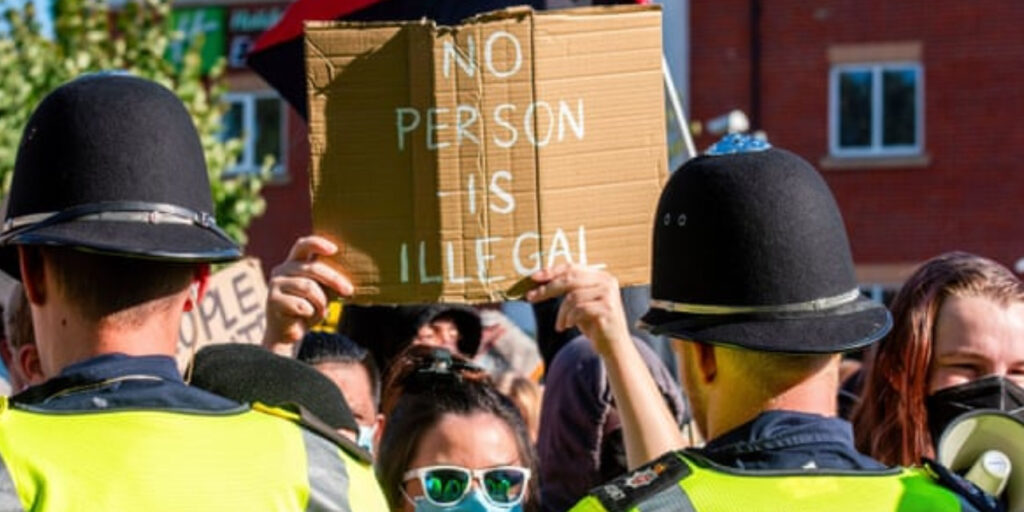A new report by the Mental Health Foundation has revealed a marked deterioration in the mental wellbeing of asylum seekers in the UK, following the racially charged riots that erupted last summer in Southport after the murder of three girls at a local dance class.
Published on Tuesday, the report highlights how asylum seekers have become increasingly fearful of venturing outside their accommodation, particularly in the wake of far-right protests and violent attacks on hotels housing migrants.
The findings reflect a worrying regression in mental health when compared with similar research carried out in February 2024.
Mark Rowland, Chief Executive of the Mental Health Foundation, said: “The 2024 summer riots had a devastating psychological impact on many asylum seekers.
Some have reported becoming virtual prisoners in their own lodgings out of fear of racially motivated violence, while others said they were too afraid to walk down the street due to the colour of their skin.”
The report also points to a significant uptick in online hostility, noting that platforms such as X (formerly Twitter) have become breeding grounds for disinformation and hate speech.
“Social media has fuelled tensions. Several participants told us they encounter hate speech almost immediately upon logging in,” Rowland added, urging stronger government action to combat online and offline hate.
In addition to documenting the mental health toll, the Foundation advocates for a major policy shift—calling on the UK government to allow asylum seekers to work in any profession if their claims remain unresolved after six months.
Backed by economic data from the Institute of Economic and Social Research, the report argues that granting employment rights could save the government £4.4 billion, generate £1 billion in GDP growth, and increase tax revenues by £880 million.
The report warns of a deepening crisis of “workless stagnation” and echoes the message of the Lift the Ban campaign, a coalition of over 300 organisations including charities, trade unions, and businesses.
Under current rules, only those with skills in designated shortage occupations can apply for work if their asylum application has been pending for over a year—a restriction that excludes the vast majority.
“Giving asylum seekers the right to work is common sense,” said Rowland. “It’s beneficial for everyone—individuals, businesses, the government, and the NHS. The current policy is both harmful and costly. Change is long overdue.”
The Foundation also drew attention to the extreme financial hardship faced by many asylum seekers, noting instances where individuals are forced to choose between meals or paying for transport to medical appointments. One child even admitted to concealing her asylum status at school out of fear of social rejection.
In response, a Home Office spokesperson said: “While we are committed to ensuring the wellbeing of individuals in the asylum system, we are equally determined to prevent illegal working and will not create a fast-track route that circumvents the UK’s established work visa system.”


